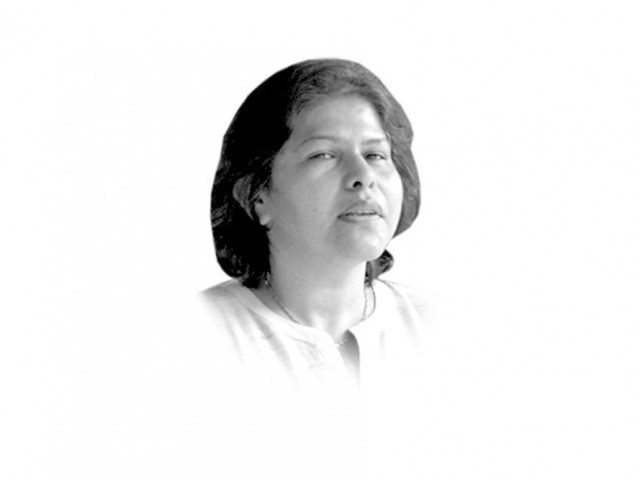Making friends of enemies
Suspicion on journalists from India stationed in Pakistan grew after The Hindu sent successive female journalists.

The writer is an independent social scientist and author of Military Inc. and was a media consultant for NAB from 2011 to 2012
What we see as just a 45 minutes plane ride across the border or a few hours of journey by road, is actually millions of miles of histories apart. It is certainly not the same as having a friend in any other place in the world whom you can visit and vice versa. The fact that the two states can grant or deny visas at their whim makes it quite an adventure to have a friendship that, in the eyes of the authorities, challenges the prescribed boundaries of nationalism. At least, I was told a few years ago by a well-known journalist-turned-politician reputed to be close to the establishment, how it was not possible as yet to make friends with an Indian in Pakistan.
These two ladies were here for over three years, one after the other, representing their newspaper, The Hindu, which sends a correspondent to Pakistan as part of a bilateral arrangement between India and Pakistan to have, at least, two media people in each other’s countries. During the 1980s, there used to be at least five journalists from either side, a number that was reduced to two in 1993 by the then-PPP government. Now, India has two journalists from the private sector in Pakistan, which, in turn, appoints two public sector media people in Delhi. While in India’s case the choice is made by newspapers that have a slot in Pakistan, Islamabad’s selection is made by its bureaucracy. No wonder, at least, one slot has been empty for over three years just like some of the Pakistan chairs in western universities. I wish the emphasis were on professionals rather than informers.
The problem with this approach is that others are seen to be doing the same thing. The suspicion regarding journalists from India stationed in Pakistan grew like wildfire after The Hindu sent two women journalists one after the other. A retired ISI chief suspects sending women as an intelligent plan (worth noticing that no one ever pointed out that all journalists from the newspaper that came before these two were men). I wish he would talk to the spooks on motorbikes that follow. They might have told general sahib how the two correspondents were certainly not the honeytrap kind. One spook who decided to interrogate me about our friendship was very unhappy with the dressing sense of these women. This was in response to my suggestion that as women, we have so much more to discuss than politics like clothes, recipes and much more. “But she doesn’t even wear good clothes”, was the abrupt answer.
Perhaps, women do get better access into households. However, what is wrong with someone from next-door looking at us beyond the lens of our historic military-strategic animosity? I remember an incident from the 1990s, when I took two visiting Indian acquaintances, who came for a conference and were university students like me, around Lahore. The site of boys playing cricket under floodlights at 1.00am in the morning in the Gulberg main market or the lights of Gawalmandi not only thrilled them but helped shed their unreal imagination of the country. Their experience was no different from those Indians who came to see cricket and returned with a different perspective.
Despite her serious limitation of being on a single city visa for Islamabad that almost constantly remained expired, Anita Joshua did make the effort to reach out to wherever she could find real people in a city known for being 20km outside Pakistan, such as in the Sunday market and other such places. One of the last farewell trips she made was to the market to say goodbye to the kindhearted vegetable and fruit sellers, whose hospitality and confidence is one of the memories she takes back to India. This is not even about a policy of artificial appeasement at the cost of pending strategic issues like Kashmir but simply a matter of dealing with each other in a more normal way. It is also about finding confidence in my own identity that is reflected in how I communicate with someone from the emotional or physical afar.
As for the fear of the security establishment regarding such ‘aliens’, the answer is quite simple: the visas are always granted after checking credentials. What a journalist writes and his/her career can be tracked easily. A fake can be distinguished from a real professional. Also, what they write as correspondents is visible. And we know that both Subramanian and Joshua did balanced reporting on Pakistan.
Besides being professional journalists, the fact that these were women did make a difference. The access to households helped them see our joys, fears, loves and lives more closely and turned them into people who would have a sympathetic eye for Pakistan forever.
Published in The Express Tribune, June 6th, 2013.
Like Opinion & Editorial on Facebook, follow @ETOpEd on Twitter to receive all updates on all our daily pieces.













COMMENTS
Comments are moderated and generally will be posted if they are on-topic and not abusive.
For more information, please see our Comments FAQ